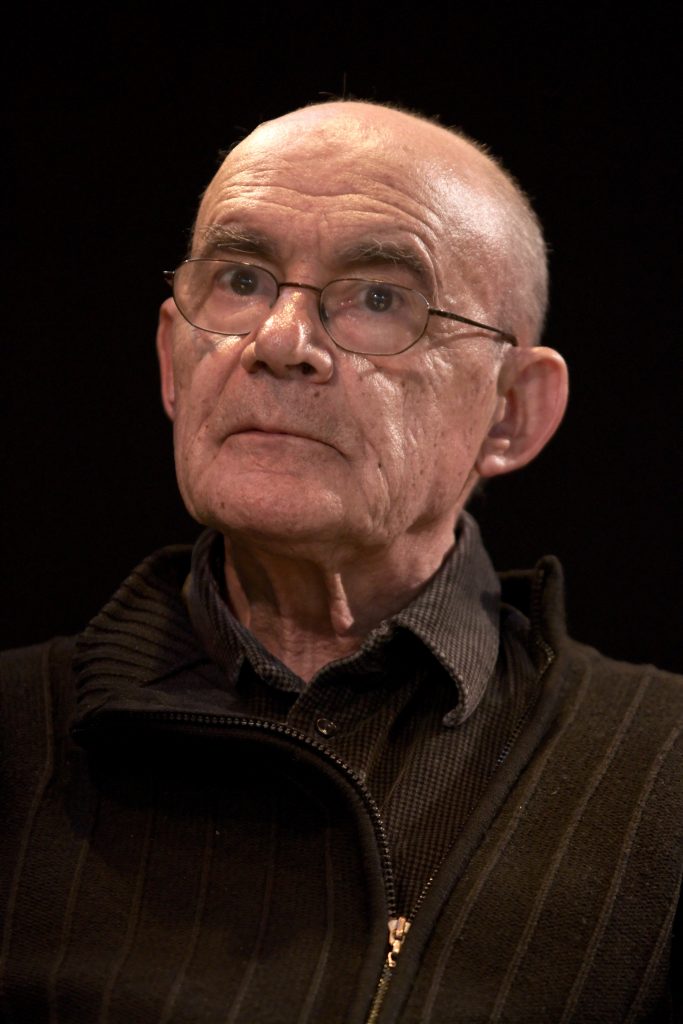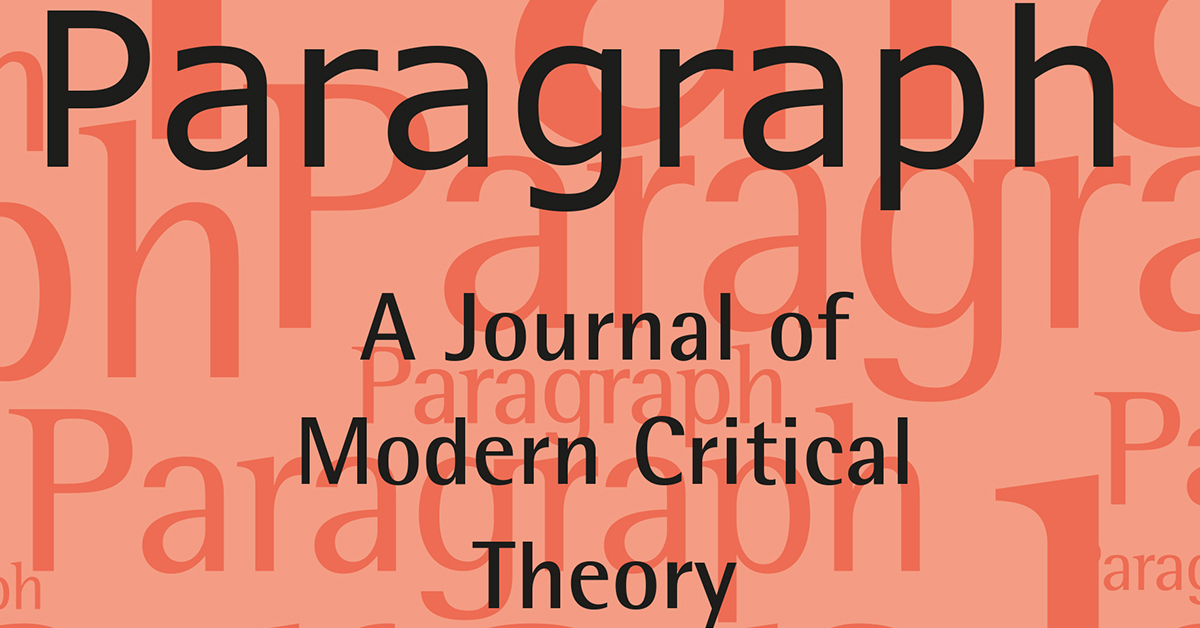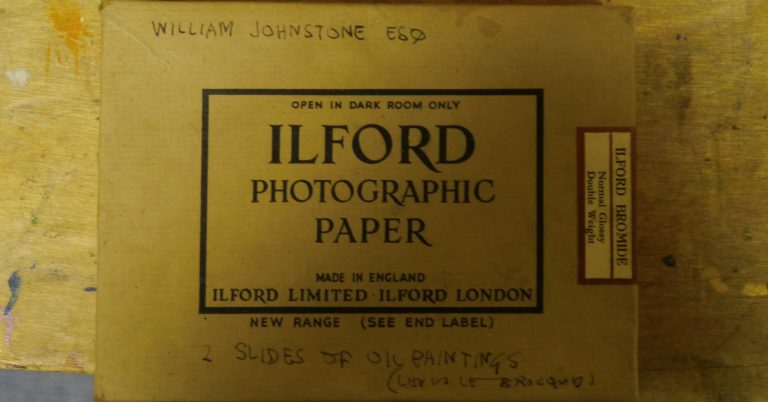
By Peggy Kamuf
In tribute to Jean-Luc Nancy, whose death was announced in August, Peggy Kamuf looks back on a landmark special issue of Paragraph (‘On the Work of Jean-Luc Nancy’, Paragraph, Vol. 16, Issue 2) which she edited in 1993.

I suppose it must have been in 1990 or 1991. My good friend Marian Hobson, a member of the founding editorial committee of Paragraph, was visiting for a term at the University of California, Irvine. I saw her often during those weeks when we both attended Derrida’s seminar at Irvine, on Monday and Wednesday afternoons. One day, Marian broached the question of whether I would consider guest editing an issue of the journal on a topic I was free to choose. It took me a few days before I responded with the proposal to do an issue on Jean-Luc Nancy’s work, and I recall that when the idea occurred to me, it immediately seemed ‘right’, and eminently worth doing. This memory contradicts, by the way, what Alexander García Düttmann is reported to have told Derrida’s biographer, Benoît Peeters, and I quote: ‘Not long before [Nancy] underwent his heart transplant, Derrida said to me: “We must talk about Jean-Luc Nancy, raise appreciation of his work.” He suggested to Peggy Kamuf that she devote a special issue of the journal Paragraph to him and wrote a first version of Touching – Jean-Luc Nancy…’ (Peeters, Derrida, Flammarion, 2010, p. 508). This annoyed me not a little when I came across it because I had been reading Jean-Luc’s work since the mid-1970’s quite independently of any ‘suggestion’ from Derrida, who, on the contrary, took my invitation to write something for the issue as a chance to begin writing what he had long been thinking about. I had also come to know Jean-Luc more personally around 1987 when he came at my invitation to Miami University, in Ohio, where I had taught before moving to Los Angeles. A group of colleagues there and I were reading his 1986 book La Communauté désœuvrée, later translated as The Inoperative Community for Columbia University Press. We had a different (and dare I say better?) translation for his title: “The Community at Loose Ends.” That was also the title of the event we organized with Nancy who spent a couple of talk-filled days with us in rural Ohio, as well as of the little book published by the Miami Theory Collective, as we grandly called ourselves, with the University of Minnesota Press in 1991. All of this to say that the idea of an issue of Paragraph on Nancy’s work had been maturing for some time, even if I did not realize it right away when Marian first approached me with her invitation.
One shouldn’t be surprised at how much can be forgotten after almost thirty years. But I confess my surprise when I took my copy of this issue of Paragraph down from the shelf, dusted it off and looked at the table of contents. I did of course remember Derrida’s long essay ‘Le toucher’, which he would soon expand into his magnificent book with the same title followed by Jean-Luc’s name, setting up thereby a polyphony of possible readings. I also remembered Nancy’s essay on Caravaggio’s ‘Death of the Virgin’, which had so captivated me when I first read it that my own contribution to the issue is principally concerned with his brilliant ‘reading’ of the painting. Likewise I recalled that there was an essay by the aforementioned Alex Duttmann because I never forgot his wryly pointing out to me the misspelling in his title on the contents page (‘Transcendances’, instead of ‘Transcendences’). But I was astonished to see the collection of other famous contributors: the formidable Peter Fenves, the author of seminal work on Benjamin, Kant, Marx, Derrida and so many others; Georges Van Den Abbeele, a member of the erstwhile Miami Theory Collective who has recently completed a long-promised book on Nancy in which I hope he includes his fine essay here; Christopher Fynsk, who had been Nancy’s student in the early 1970’s, and now directs the European Graduate School in Saas-Fee, Switzerland. I was most stunned, however, to be reminded that the issue had included an essay by the late, legendary and peerless Werner Hamacher. But then it came back to me how Marian, who had offered to translate his essay for the issue, was made to suffer from his unsparing criticisms of her efforts. This was part of Werner’s legend: his irascible conviction that no translation of any text of his could ever approach what he had written in German. And for that he was beloved.
As was Jean-Luc Nancy, who in this and many other ways was so unlike his friend Werner. When some years after this issue appeared, I translated Nancy’s The Muses, I remember querying him on a few points and his response being invariably something like: ‘I don’t know, do whatever you think best.’ Among all the things I no longer recall, I don’t remember how he responded to this issue of Paragraph when it was published. But I will never doubt that it was with eager signs of his unfailing generosity.
Salut, Jean-Luc!
Peggy Kamuf is a co-editor of Jacques Derrida’s seminars at the Éditions du Seuil, co-director of the Seminars of Jacques Derrida series at the University of Chicago Press, and on the editorial board of the Oxford Literary Review. Her most recent book is Literature and the Remains of the Death Penalty (Fordham University Press, 2019). She is is Professor Emerita of French and Comparative Literature at the University of Southern California.

Paragraph is a leading journal in modern critical theory, exploring critical theory in general and its application to literature, other arts, including film and visual culture, and society. Find out how to subscribe as an individual, or recommend to your institution’s library.
In tribute to Jean-Luc Nancy, Paragraph is making freely available a number of articles it has published by and on Nancy since 1986 (access the free Virtual Issue). This is in addition to the landmark special issue from 1993 (Paragraph 16.2: On the Work of Jean-Luc Nancy), which can also be accessed freely (both issues will be available until 31 October 2022).





